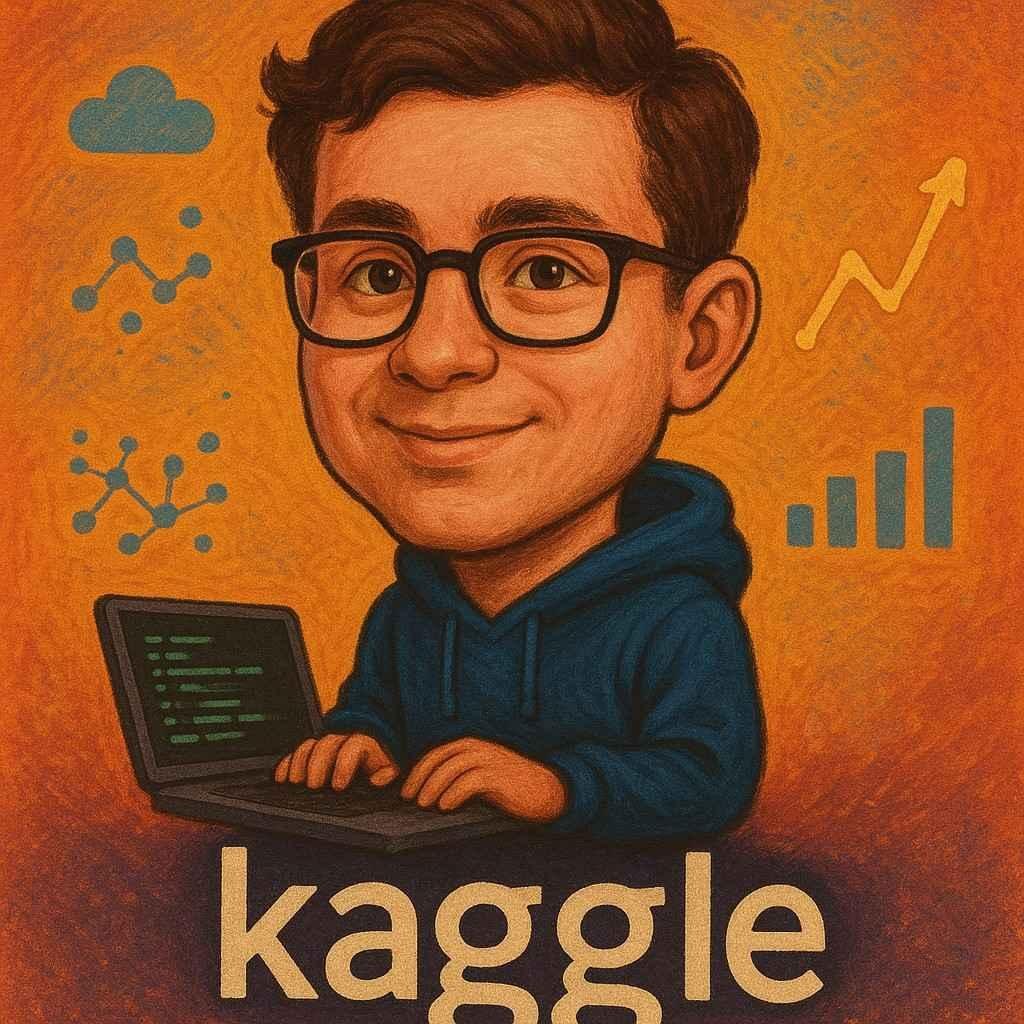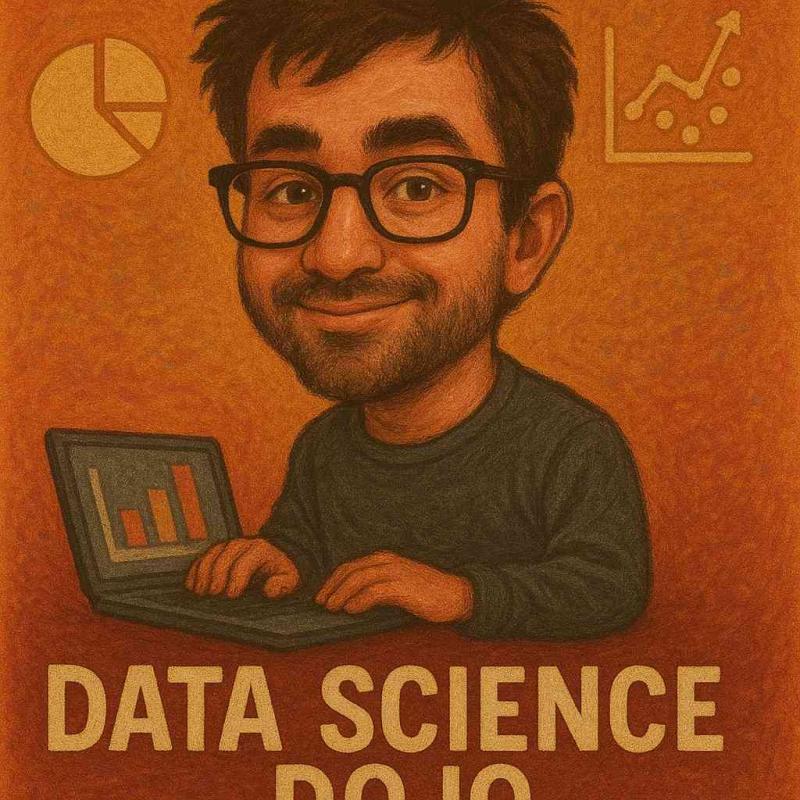Kaggle – Where Data Scientists Compete, Learn, and Nerd Out Together
Let me tell you a secret: I didn’t really understand data science until I lost—horribly—in a Kaggle competition. And oddly enough? That loss taught me more than weeks of tutorials. Why? Because Kaggle isn’t just a platform—it’s a wild, wonderful ecosystem of gritty learning, real-world problems, and glorious (sometimes humbling) feedback loops.
If you’ve ever googled “best place to learn data science,” chances are Kaggle popped up. And with good reason. Tutorials? Yep. Real-world machine learning competitions? Oh yeah. A global community of brainy, sometimes snarky, spreadsheet-slaying, model-tweaking data lovers? Absolutely.
Let’s explore this chaotic-but-beautiful beast.
Kaggle 101: What Is It, Really?
At its core, Kaggle is three things:
-
A competition platform
You download datasets, build models, and submit predictions—all to climb the leaderboards. Some competitions offer cold hard cash (hello, corporate sponsors), but others are just for glory. Either way, you learn. Fast. -
A tutorial treasure trove
Think YouTube meets Jupyter Notebook. Kaggle offers hands-on, bite-sized courses—like “Intro to Machine Learning” or “Feature Engineering”—all free and interactive. -
A ridiculously engaged community
Forums, kernels (aka code notebooks), data discussions—if Stack Overflow and Reddit had a brainy data baby, it would probably look like this.
Kaggle’s tagline is “Your Home for Data Science.” IMO, that undersells it. It’s more like your weirdly obsessive, always-on, slightly intimidating data science roommate. And I say that lovingly.
Why I Keep Coming Back (Even After Failing at Titanic Twice)
Let’s be real—my first Kaggle experience involved the Titanic dataset (as all great data science failures do). I thought I was a genius. I dropped in a decision tree, added “sex” and “age” as features, and waited for the leaderboard love.
Spoiler: I placed 8,423rd. Out of 9,000. :/
But here’s what hooked me:
-
I could see other people’s solutions.
-
I could learn from their code (and their mistakes).
-
I could iterate quickly and watch my rank change.
It felt like a game. A really nerdy, addictive one. Where your weapons were pandas, scikit-learn, and Google-fu.
What Makes Kaggle Actually Useful (And Not Just Intimidating)
It’s easy to assume Kaggle’s just for elite coders flexing their XGBoost muscles. But honestly? It’s one of the best places to actually get better at data science.
Here’s why:
1. Hands-On Learning
You learn by doing. Not by reading textbooks, not by watching endless lectures. You run code. You break it. You fix it. You see results instantly.
2. Feedback Loops Galore
Competitions have live leaderboards. Not to crush your soul (okay, maybe a little), but to help you understand what’s working—and what’s not.
3. Transparent Solutions
Many top competitors publish full solution writeups. And wow—they’re detailed. You’ll see how they engineer features, tune models, and stack ensembles like it’s an Olympic sport.
4. Real-World Data
We're not talking toy datasets here. Kaggle hosts challenges on satellite imagery, natural language processing, tabular business data—you name it. These are the kinds of messy, complex, high-stakes problems real companies face.
Tutorials: Not Just for Beginners
Now, let’s talk tutorials.
Kaggle calls them micro-courses, but don’t let the “micro” fool you. These things pack a punch. And they’re perfect whether you're a total newbie or just trying to brush up on a rusty skill.
Some favorites:
-
Python: A friendly starting point, even if your last experience with code was HTML in high school.
-
Intro to Machine Learning: Teaches you just enough to sound smart at parties. Or job interviews.
-
Pandas: Because wrangling data is 80% of the job. And no one wants to admit how often they Google
.loc[].
Each course includes:
-
Short text-based lessons.
-
Interactive notebooks with runnable code.
-
Exercises that actually make you think (yes, you’ll make mistakes—it’s part of the fun).
Competitions: Where the Real Fun (and Panic) Happens
If tutorials are the warm-up, competitions are the obstacle course. But they’re also where I’ve learned the most.
Types of competitions include:
-
Featured Competitions
Big-name sponsors, serious data, and prize pools that might pay your rent. Or your GPU upgrade. Examples: predicting forest cover types, credit scoring models, protein folding (casual, right?). -
Research Competitions
Less about cash, more about innovation. These often tackle bleeding-edge problems—think disease diagnosis or satellite image segmentation. -
Recruitment Competitions
Want a job? Solve this dataset. Seriously. Companies like Home Credit and Expedia have hired straight from Kaggle leaderboards. -
Getting Started Competitions
These are your “training wheels.” Titanic. House Prices. Digit Recognizer. Perfect for testing waters without drowning in neural nets.
Here’s what you really gain from competing:
-
A portfolio of actual, working ML solutions.
-
Street cred (or internet cred, same diff).
-
A deep understanding of model tuning, ensembling, validation tricks, and more.
The Kaggle Community: Surprisingly Wholesome for the Internet
This might be the best part. Kaggle’s forums are chef’s kiss. Supportive. Informative. And, yes, occasionally savage—but in a charmingly nerdy way.
You’ll find:
-
Discussions on competition strategy.
-
People asking beginner questions without getting roasted.
-
Debates over model architecture like it’s a fantasy football draft.
Even better? The Notebooks section, where users share public code. Think of it as a collaborative library of working solutions, creative approaches, and clever hacks.
Pro tip: Don’t just copy-paste. Read, break things, tweak them. That’s how you level up.
A Few Cautions (Because This Isn’t Hogwarts)
I love Kaggle, but I won’t pretend it’s perfect.
-
It’s easy to leaderboard chase.
You’ll find yourself tweaking hyperparameters endlessly, trying to squeeze out a 0.001 improvement. Sometimes at the cost of understanding. -
You might feel imposter syndrome.
You’ll see top-ranked solutions and wonder if your brain's been replaced with mashed potatoes. It hasn’t. Everyone starts somewhere. -
Overfitting is real.
Public leaderboard scores can mislead. Many top models fail miserably when applied in the real world. Use cross-validation. Stay skeptical.
Final Thoughts: Should You Kaggle?
If you're into data science, machine learning, or just like solving brainy puzzles with real-world consequences, yes. Absolutely yes.
Kaggle helped me go from “I think I kinda get logistic regression” to “Hey, I just built a passable classifier and ranked in the top 20%.” And it didn’t feel like a chore. It felt like leveling up in a game. With Python.
So whether you’re building your portfolio, switching careers, or just want to stop feeling like a fraud in ML meetings—give Kaggle a try. Jump into a competition. Break someone else's notebook. Write a forum post that makes you nervous.
You’ll learn, stumble, laugh, rage at overfitting... and then learn some more.
Plus, where else can you bond with a stranger halfway across the globe over the quirks of LightGBM?
Exactly. Now go grab a dataset and build something. :)



